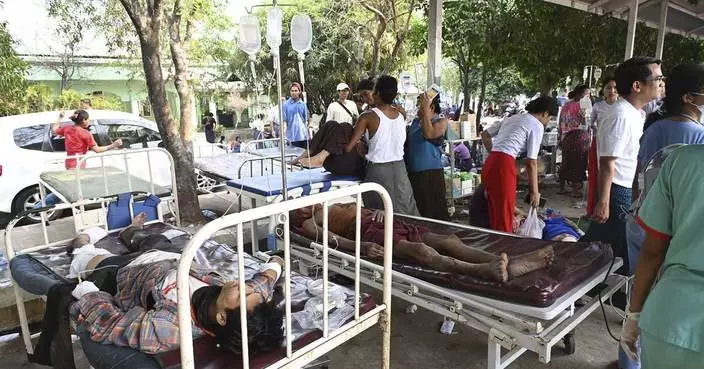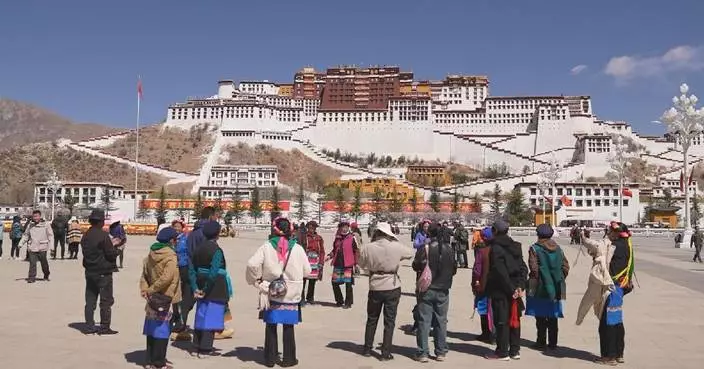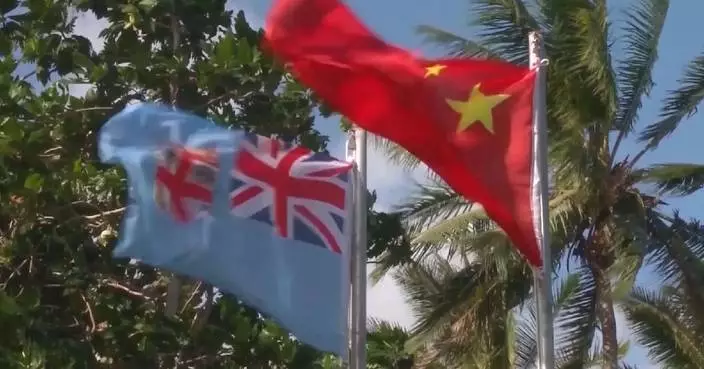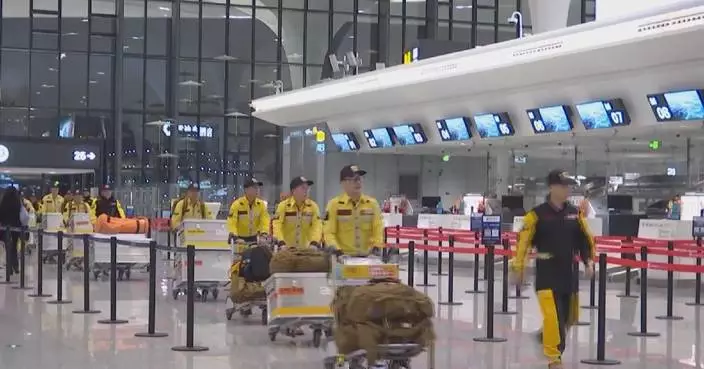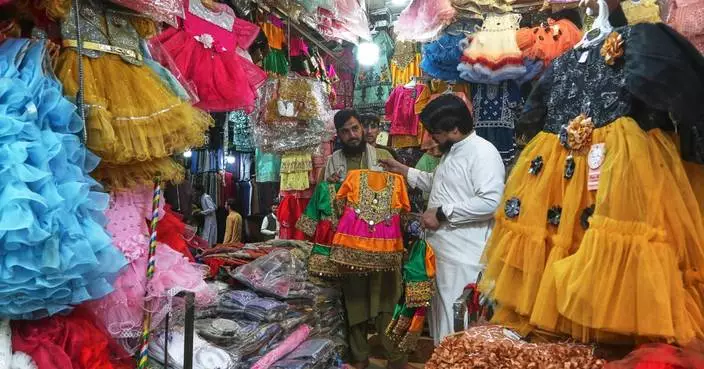Hainan and Hong Kong sign Memorandum of Cooperation in Boao, Hainan (with photos/video)
The Chief Executive, Mr John Lee, attended the Signing Ceremony of Hainan Hong Kong Memorandum of Cooperation in Boao, Hainan, today (March 26) and, together with the Secretary of the CPC Hainan Provincial Committee, Mr Feng Fei, witnessed the signing of the Hainan Provincial People's Government and Hong Kong Special Administrative Region Government (HKSAR) Memorandum of Cooperation by the Deputy Chief Secretary for Administration, Mr Cheuk Wing-hing, and Vice Governor of Hainan Provincial People's Government Mr Bateer.
Deputy Director of the Liaison Office of the Central People's Government in the HKSAR Mr Qi Bin also attended the signing ceremony. Officials of the HKSAR Government who also attended the conference included the Deputy Chief Secretary for Administration, Mr Cheuk Wing-hing; the Secretary for Innovation, Technology and Industry, Professor Sun Dong; the Director of the Chief Executive's Office, Ms Carol Yip; and the Under Secretary for Constitutional and Mainland Affairs, Mr Clement Woo.
Hong Kong and Hainan reached consensus on the following five co-operation areas:
Trade and Investment
Actively explore the expansion of in-depth co-operation in the areas of medicine, finance, commerce and trade, tourism and culture, and data services industries.
Leverage the role of the Hainan Free Trade Port in expanding the room for Hong Kong's development. Promote Hong Kong's better integration into the overall development of the country and leverage Hong Kong's distinctive advantages as a "super-connector".
Support Hong Kong enterprises in participating in the China International Consumer Products Expo and encourage Hainan enterprises and associations to organise and participate in trade fairs in Hong Kong.
Finance
Encourage enterprises from the Hainan Free Trade Port to issue bonds in Hong Kong and support high-quality enterprises from the Hainan Free Trade Port in listing in Hong Kong.
Safe and Orderly Flow of Data
Promote the safe and orderly flow of data between Hainan and Hong Kong, and jointly promote co-operation in data services between the two sides.
Tourism
Support the tourism industry of Hainan in commencing joint international marketing and develop products for multi-destination tourism with the travel trade and aviation sector of Hong Kong.
Talent Exchange
Pursue further opening up of more sectors of Hainan's services market to Hong Kong, including finance, legal services, accounting, consulting, convention and exhibition, architectural and planning, under the framework of the Agreement on Trade in Services of Mainland and Hong Kong Closer Economic Partnership Arrangement (CEPA), with a view to expanding the scope for practice by Hong Kong's professional services sector while lifting the standard of internationalisation of Hainan's professional services sector.
Based on their Hong Kong professional qualifications, allow Hong Kong professionals with qualifications listed in the recognised Hong Kong professional qualifications directory to provide relevant professional services to enterprises and residents in the Hainan Free Trade Port, upon approval by the relevant authorities of the professional industries.
The document (Chinese only) is in the Annex.
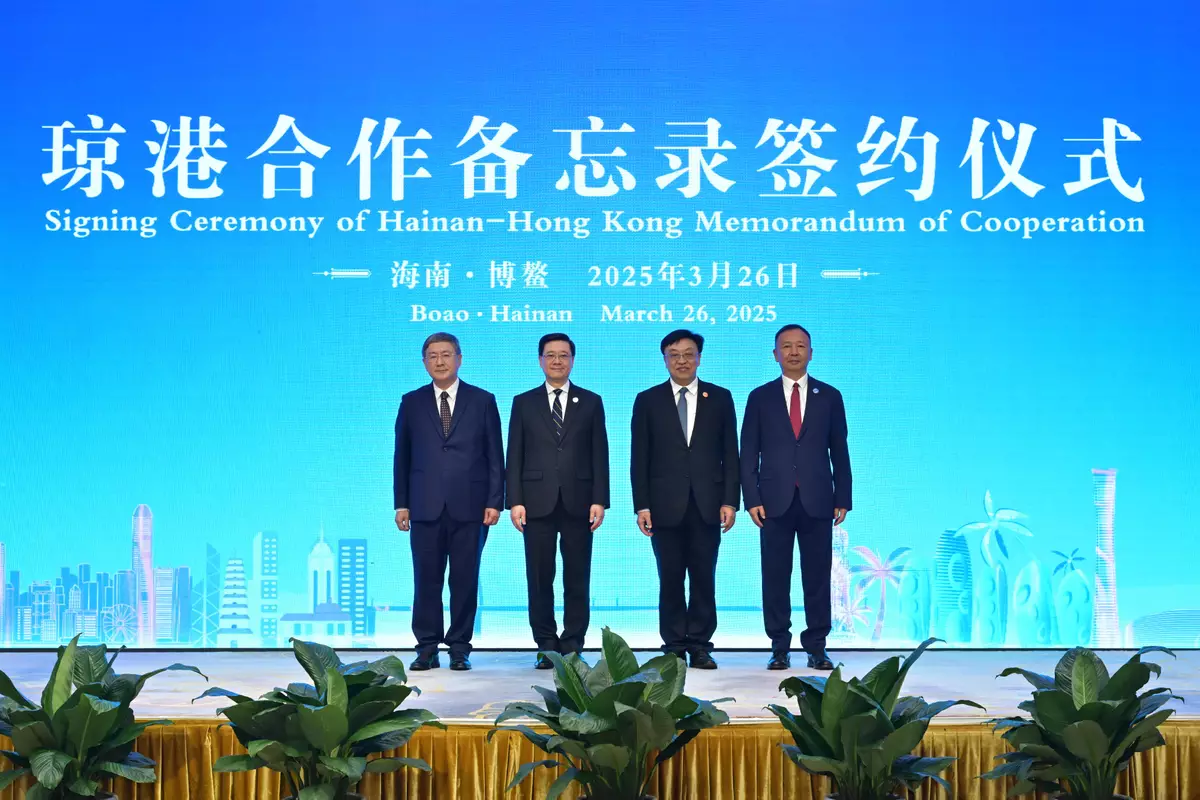
Hainan and Hong Kong sign Memorandum of Cooperation in Boao, Hainan (with photos/video) Source: HKSAR Government Press Releases
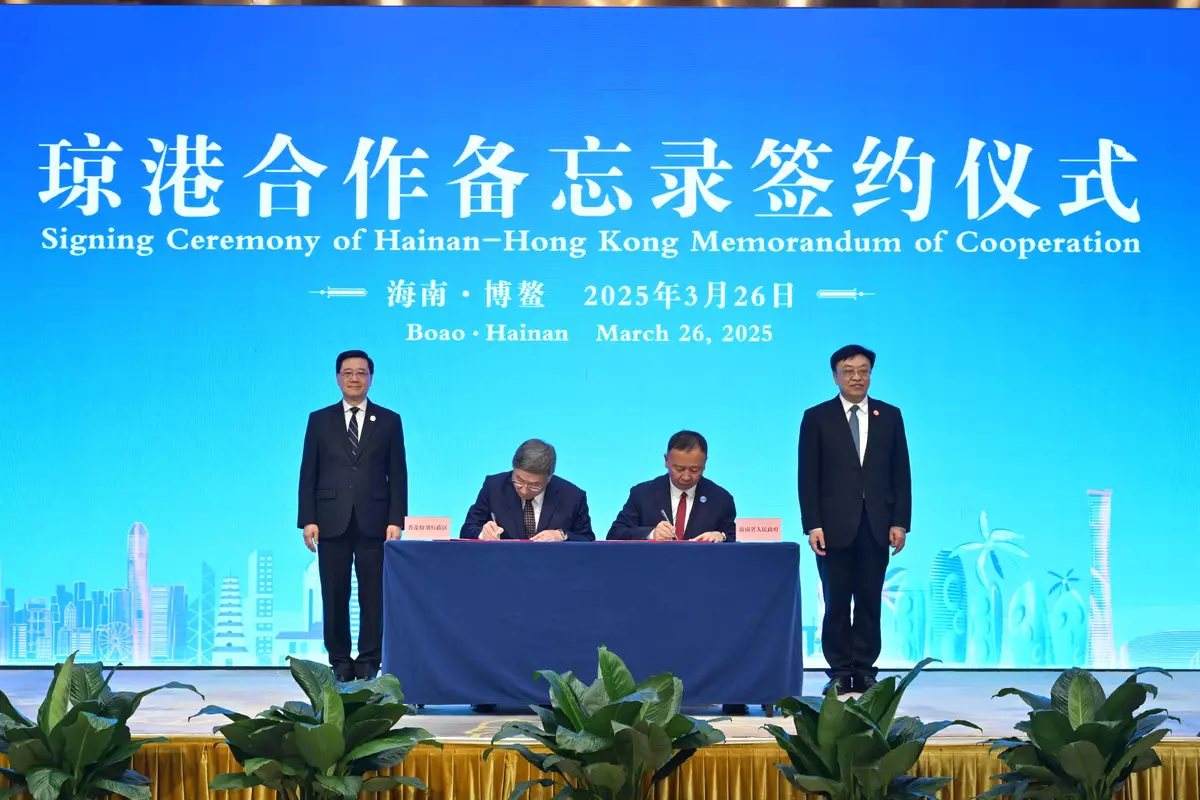
Hainan and Hong Kong sign Memorandum of Cooperation in Boao, Hainan (with photos/video) Source: HKSAR Government Press Releases
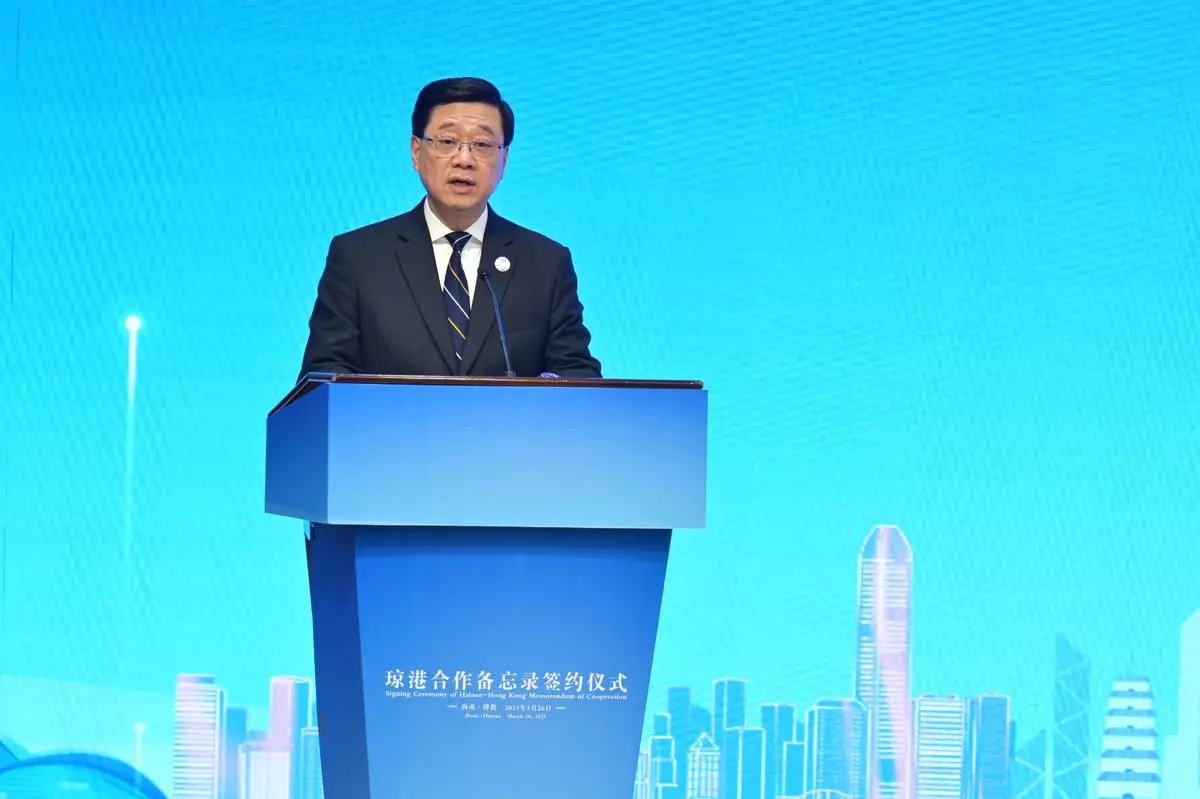
Hainan and Hong Kong sign Memorandum of Cooperation in Boao, Hainan (with photos/video) Source: HKSAR Government Press Releases
CHP reminds public of precautions against cold weather
The Centre for Health Protection (CHP) of the Department of Health (DH) today (March 30) reminded the public, particularly the elderly and people with chronic illnesses, to adopt appropriate measures to protect their health in view of the cold weather.
Cold weather can easily trigger or exacerbate diseases, especially among the elderly and persons suffering from heart disease, respiratory illnesses or other chronic illnesses.
Elderly people have less insulating fat beneath their skin to keep them warm, and their body temperature control mechanisms may be weaker. Their bodies may not be able to respond appropriately to cold weather.
Some senior persons may have decreased mobility, which can impair their ability to generate and conserve body heat. Chronic illnesses, such as hypertension, diabetes and endocrine disorders, may undermine the health of elderly people and lower their metabolic rate, subsequently causing their bodies to generate less heat. Persons with chronic illnesses, such as chronic respiratory illnesses or heart disease, are vulnerable to disease aggravation due to cold weather.
The CHP reminded the public, in particular the elderly and persons with chronic illnesses, to adopt the following preventive measures:
Take note of the weather forecast. Wear warm clothing, including hats, scarves, gloves and socks, accordingly;
Consume sufficient food to ensure adequate calorie intake;
Perform regular exercise to facilitate blood circulation and heat production;
Stay in a warm environment and avoid prolonged outdoor exposure;
Use heaters with care and maintain adequate indoor ventilation; and
Seek medical advice if feeling unwell.
In addition, the public should avoid alcoholic beverages.
Drinking alcohol does not keep you warm. Alcohol accelerates the loss of body heat through dilated blood vessels, resulting in chilling instead.
Parents should ensure that babies are sufficiently warm, but it is also important to keep babies relatively lightly clothed to avoid overheating.
Parents should observe the following safety measures when putting their children to bed:
Keep the room well ventilated and at a comfortable temperature;
Always place babies on their backs to sleep. Leave their heads, faces and arms uncovered during sleep;
Babies do not need pillows. Place babies on a firm and well-fitted mattress to sleep. Avoid soft objects, pillows and loose bedding;
Let babies sleep in a cot placed near their parents' bed; and
Maintain a smoke-free environment.
In addition, many respiratory pathogens, including influenza and SARS-CoV-2, may have increasing activity and community transmission during winter. Seasonal influenza vaccination is recommended for all persons aged 6 months or above, except those with known contraindications. Persons at higher risk of influenza and its complications, including the elderly and children, should receive seasonal influenza vaccinations early. Please see details of the vaccination schemes on theCHP'swebsite.
A person infected with influenza and COVID-19 at the same time may be more seriously ill and have a higher risk of death. It is important for elderly persons, especially those residing in residential care homes, to receive both seasonal influenza and COVID-19 vaccinations. They should also receive an additional booster against COVID-19 according to recommendations as soon as possible. The public should also maintain good personal and environmental hygiene against respiratory illnesses and note the following:
Surgical masks can prevent the transmission of respiratory viruses from ill persons. It is essential for persons who are symptomatic (even if having mild symptoms) to wear a surgical mask;
Wear a surgical mask when taking public transport or staying in crowded places. It is important to wear a mask properly, including performing hand hygiene before wearing and after removing a mask;
Avoid touching one's eyes, mouth and nose;
Wash hands with liquid soap and water properly whenever possibly contaminated;
When hands are not visibly soiled, clean them with 70 to 80 per cent alcohol-based handrub;
Cover the mouth and nose with tissue paper when sneezing or coughing. Dispose of soiled tissue paper properly into a lidded rubbish bin and wash hands thoroughly afterwards;
Maintain good indoor ventilation;
When having respiratory symptoms, wear a surgical mask, refrain from work or attending classes at school, avoid going to crowded places and seek medical advice promptly; and
Maintain a balanced diet, exercise regularly, take adequate rest, do not smoke and avoid overstress.
Food-borne diseases, particularly those linked to hotpot cuisine, are also common in cold weather. The following preventive measures should be taken:
Wash hands before handling and consuming food;
Do not patronise unlicensed vendors or those with poor hygienic standards while selecting food;
Wash and cook all food thoroughly;
Vegetables should be washed thoroughly in clean running water before cooking and consumption. When appropriate, scrub hard-surfaced vegetables with a clean brush to remove dirt and substances, including pesticide residues and contaminants, from surfaces and crevices;
Shrimps should be fully cooked until the shells turn red and the flesh turns white and opaque;
For shellfish such as scallops and geoduck, scrub the shells thoroughly and remove the internal organs;
Do not eat any undercooked freshwater aquatic products. To ensure that the food is thoroughly cooked, the centre of the food should reach a temperature of at least 75 degrees Celsius to destroy pathogen;
Most hotpot ingredients should be stored in a refrigerator at 4 degrees C or below, while frozen food should be stored in a freezer at -18 degrees C or below;
Never use raw eggs as a dipping sauce for hotpot; and
Use different sets of chopsticks to handle raw and cooked food to avoid cross-contamination.
In addition, when using fuel-burning appliances, especially in indoor areas, the public should ensure adequate ventilation to avoid harmful exposure to carbon monoxide (CO) and prevent CO poisoning.
For more health information, the public may call the DH's Health Education Infoline (2833 0111) or visit theCHP's websiteandFacebook Fanpage.
The public may also call Dial-a-Weather (1878 200) or visit thewebsite of the Hong Kong Observatoryfor the latest weather information and forecasts, or itspage on Weather Information for Senior Citizens.










